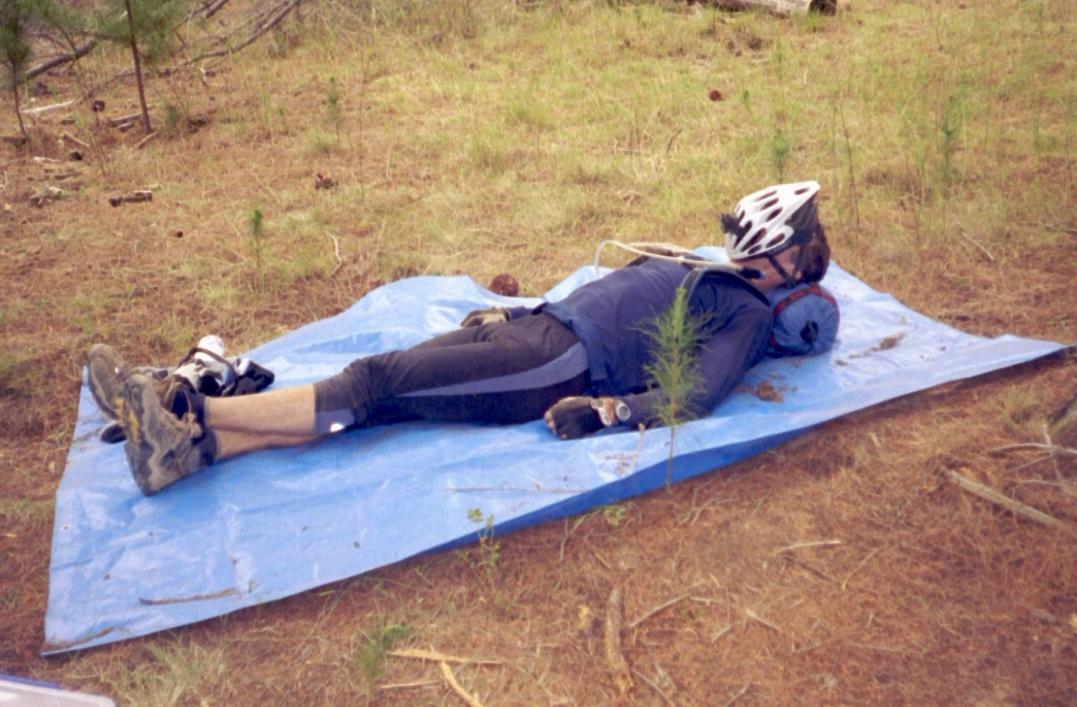Injury management
A part of being an athlete, whether recreational or professional, part-time or as a lifestyle, is knowing how to manage injury. Most of us will experience times in our athletic career where we carry a chronic injury that just won't seem to go away. Perhaps the most common are knee and ITB problems. The following websites are useful in helping to improve understanding of such injuries and providing possible prevention and treatment strategies:
- The Knee Guru - A comprehensive UK-based site on the knee's anatomy, common problems and diseases, and what to do about them. If you have or are at risk of knee problems, this will be a valuable resource.
- Iliotibial Band Syndrome - Or ITBS, a common problem for cyclists and endurance runners. ITBS can be debilitating and excruciatingly painful during a race. This site is all about managing and preventing it.
Staying hydrated
- Tips for staying hydrated during training and racing...[Coming soon]
- Electrolytes: The Extra Edge is a brief article on athlete hydration from the Coaches Edge website
The physiology of Orienteering
- Exercise and cognitive performance - Optimisation strategies for the Orienteer
- Elite Orienteering - description and physiology
Sleep
Sleep deprivation and its effects are a vital consideration in races of about 36 hours or more. Check out the articles below for some of the technical aspects of sleep.
Managing fatigue
- Using Heart Rate Variability to Help Your Athletic
Performance
One of the most important elements of endurance training, and one that athletes often get wrong, is managing training fatigue. In order to get optimal adaptations from your training, fatigue is something that needs to be taken into consideration when deciding whether to continue to apply training load or back it off. There are times when fatigue is expected and even required to get the required gains, but there are also times when excessive fatigue will limit the effect of your training session. Having the ability to know this adds a new dimension to training, allowing you to control your training load in order to achieve the desired outcome. This article by Paul Montgomery and Ben Wisbey from Fitsense Australia provides a good strategy for monitoring your fatigues levels using a heart rate monitor.
- General information and background on overtraining syndrome
- This article in the Physician and Sportsmedicine journal (May 2001) gives a good overview of overtraining syndrome and how to prevent it.
"Overtraining syndrome is a serious problem marked by decreased performance, increased fatigue, persistent muscle soreness, mood disturbances, and feeling 'burnt out' or 'stale.' The diagnosis of overtraining is usually complicated, there are no exact diagnostic criteria, and physicians must rule out other diseases before the diagnosis can be made...the subjective feelings of the patient remain one of the most reliable early warning signs. Prevention is still the best treatment, and certain subjective and objective parameters can be used by athletes and their trainers to prevent overtraining."
The full article is on the journal's website here.
Hypothermia
- "The human system operates in a narrow range of body temperature. Athletic activity and associated environmental exposure can upset or overwhelm the normal balance of thermal regulation resulting in body temperatures outside the normal range..."
Despite the technical language, this is an interesting paper on how the body regulates temperature and the injuries/illnesses that can be caused by temperature extremes. Every adventure athlete should know the basics. The full version is here.



